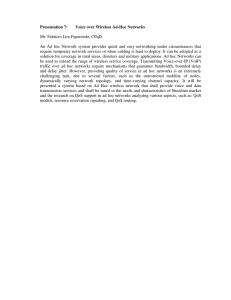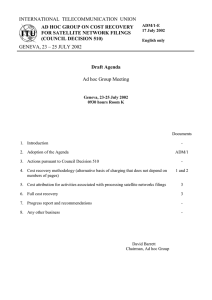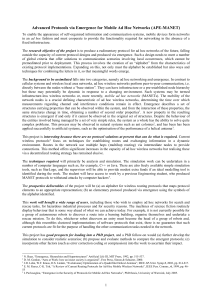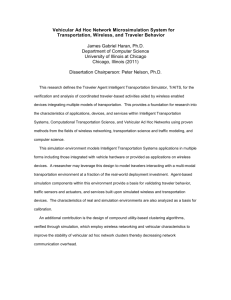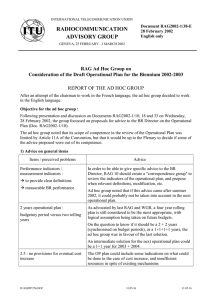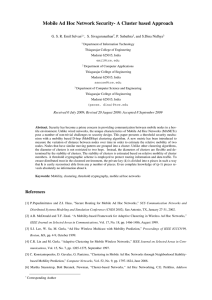M. Leeson (Warwick)
advertisement
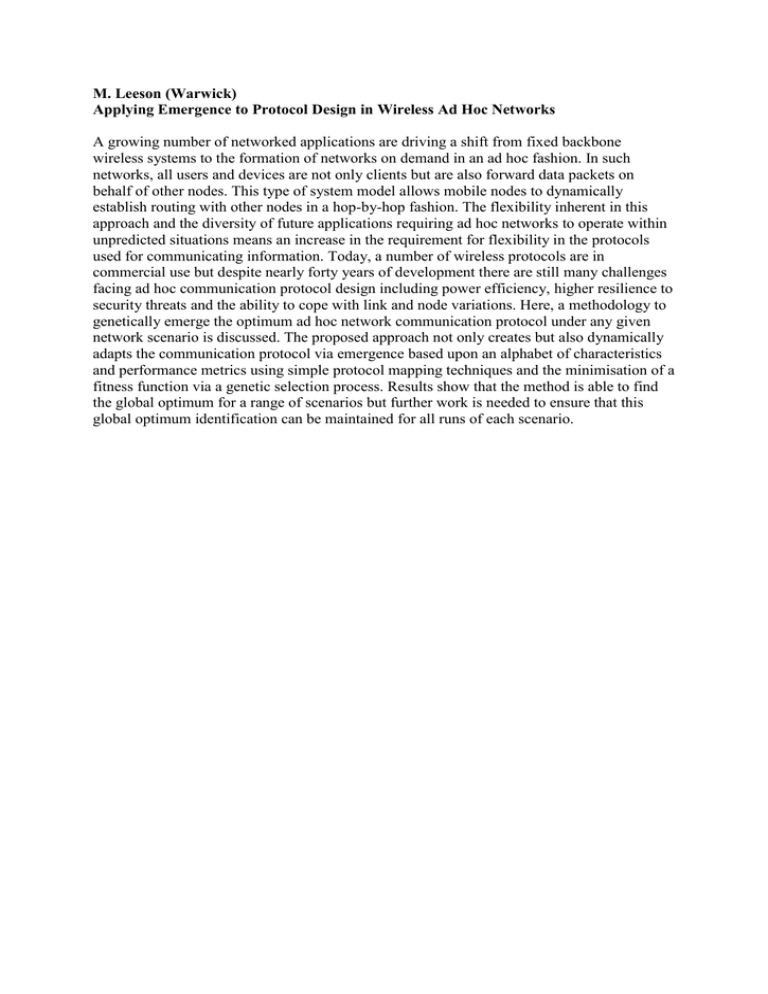
M. Leeson (Warwick) Applying Emergence to Protocol Design in Wireless Ad Hoc Networks A growing number of networked applications are driving a shift from fixed backbone wireless systems to the formation of networks on demand in an ad hoc fashion. In such networks, all users and devices are not only clients but are also forward data packets on behalf of other nodes. This type of system model allows mobile nodes to dynamically establish routing with other nodes in a hop-by-hop fashion. The flexibility inherent in this approach and the diversity of future applications requiring ad hoc networks to operate within unpredicted situations means an increase in the requirement for flexibility in the protocols used for communicating information. Today, a number of wireless protocols are in commercial use but despite nearly forty years of development there are still many challenges facing ad hoc communication protocol design including power efficiency, higher resilience to security threats and the ability to cope with link and node variations. Here, a methodology to genetically emerge the optimum ad hoc network communication protocol under any given network scenario is discussed. The proposed approach not only creates but also dynamically adapts the communication protocol via emergence based upon an alphabet of characteristics and performance metrics using simple protocol mapping techniques and the minimisation of a fitness function via a genetic selection process. Results show that the method is able to find the global optimum for a range of scenarios but further work is needed to ensure that this global optimum identification can be maintained for all runs of each scenario.
